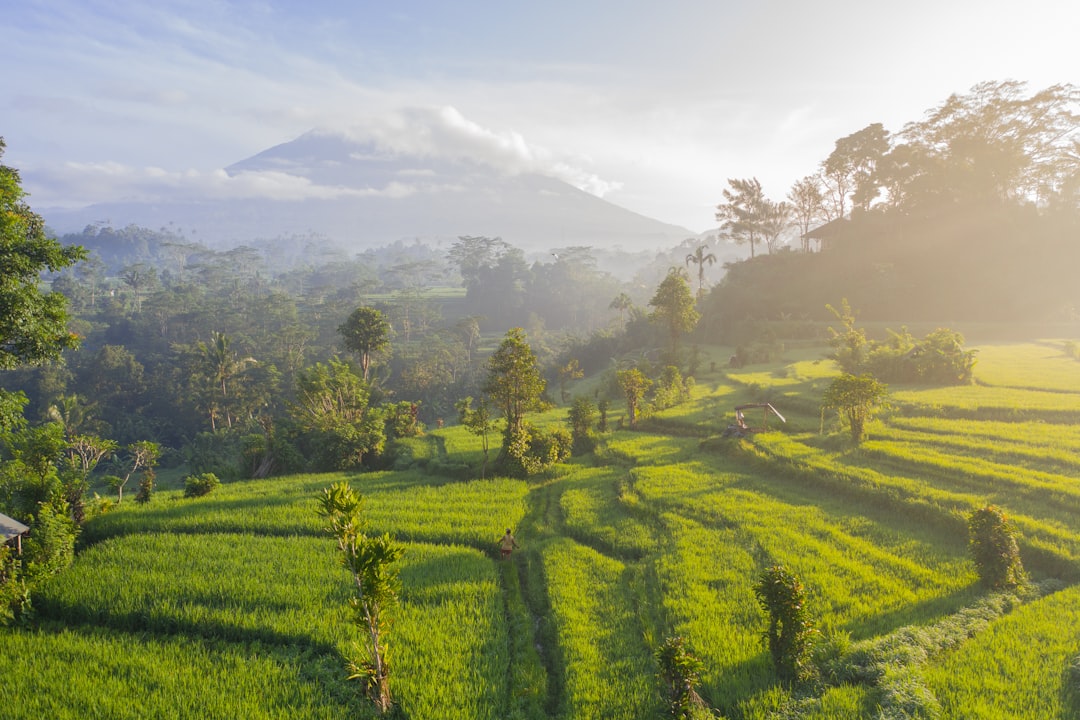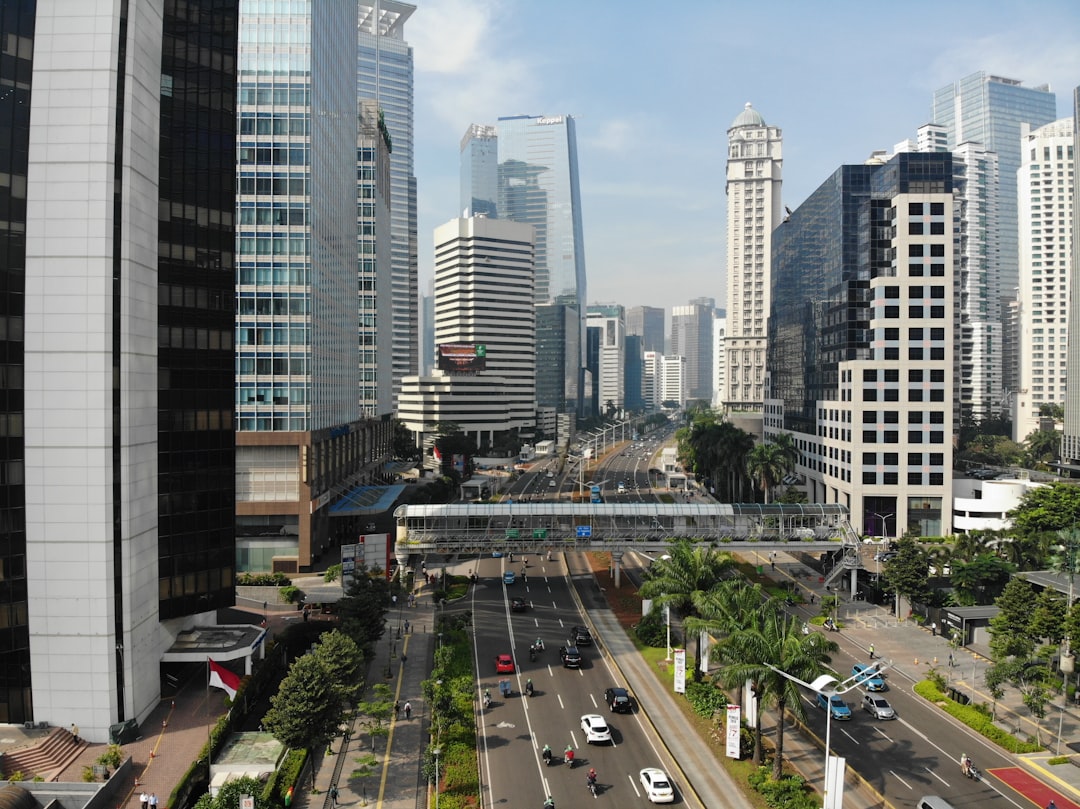Dispatch from the road: the gray middle of Indonesia's internet freedom
How free are we on the internet – really?
In this week’s newsletter, our intrepid traveling writer and illustrator, Josh Kramer, shares his perspective on what the internet looks like from the other side of the world.

Three things:
🔗 There are worrisome similarities between life online in the US and Indonesia
🌏 Economic and cultural differences have shaped the social internet in both nations
🎭 Internet freedom is not black or white: Indonesia is a vibrant democracy with a mixed record online
In the weeks since the Supreme Court overturned Roe v. Wade, many Americans, especially those living in states now criminalizing abortion, have begun to question how much internet freedom and data privacy they really have. Nora Benavidez writes in Tech Policy Press:
“Those trying to determine how and where they can obtain reproductive healthcare face added layers of complexity when they use the internet and their smartphones to learn more. Law enforcement can now weaponize online data to investigate, harass and take legal action against people seeking abortions.”
So, where does the US stack up internationally? Non-profit Freedom House grades nations on internet freedom based on three factors: obstacles to access, limits on content, and violations of user rights. On the higher end, Iceland earns a 96 out of a possible 100. At the opposite end of the spectrum, China – which blocks outside social media, monitors private messages, and severely punishes criticism – has a score of 10 (for more on China, see José Marichal’s recent piece in New_ Public Magazine).
The US has a 75/100, which could be interpreted as a middling “C” grade, but this placement stands firmly within the “free” category. But if you’re worried about US internet freedom sliding down the scale, our future is less likely to be like China than the country I’m visiting right now — Indonesia. If I try to pull up Reddit, I get nothing. Their government does not want anyone to be able to access many of the sites and apps we take for granted in the West, including Vimeo and the gay dating app Grindr. Without a VPN, they don’t exist here.
With an internet freedom score of 48, Indonesia deserves a closer look, if only to examine what a place with a bit less internet freedom than the US is like. It’s worth noting that I’m no expert — I’ve been in the country for just over a week — but I’ll do my best to present the facts as compiled by Freedom House’s excellent, detailed report.
Indonesia, just like the USA

Indonesia is more like the US than you might think. No, really! It’s the fourth most populous country in the world (after China, India, and the US), with 277 million residents compared to our 334 million. Indonesia is also a multicultural nation that fought hard for its independence and is proud of its democracy and elections. Their national motto translates to “unity through diversity,” They are a melting pot of a different kind, comprised of a multitude of ethnic groups speaking over 700 languages. Obviously, there are significant differences between us. As opposed to spanning one huge continent, Indonesia is an archipelago of more than 13,000 tropical islands1. And while the majority of Indonesian people are religious, like Americans, most Indonesians are Muslim.
In terms of the internet, both countries rely on a few monopolistic mobile and wired internet providers, and there is relatively less connectivity in rural areas. However, while Indonesia was slower to get online, the last decade has seen massive growth in online presence, and smartphones are ubiquitous in cities.
In addition to our constitution, the US relies on Section 230 and laws like FOSTA-SESTA to regulate internet speech. Indonesia has the Electronic Information and Transactions (ITE) Law, which gives the Indonesian government comparatively far more options to regulate online activity (which the courts have often affirmed).
In both nations, platforms and users self-censor and curb speech to avoid censorship or further regulation. TikTok provides a good example of both. TikTok’s owner, ByteDance, made arrangements and concessions to ameliorate government concerns in both the US and Indonesia. However, even with a constitutionally protected right to free speech, American TikTok users often employ coded language like “seggs” instead of “sex” to avoid automatic content moderation. Notably, neither country has a federal law protecting personal data privacy.
Indonesia’s partly free internet
There are enough significant differences to warrant Indonesia a “partly free” internet freedom rating from Freedom House. For example, while many Americans don’t have much choice of ISP for home internet, Indonesia’s biggest internet company is Telkom, which is state-owned. Ostensibly, they are an independent company, but they seem to take cues from the government in some decisions, like banning Netflix from 2016-2020.
That may be the single biggest distinction: the Indonesian government is willing to turn off websites, demand social posts be removed, or deplatform whole apps. According to Freedom House, in 2019, the government limited access to Facebook, Instagram, Twitter, and WhatsApp in the days before the national elections. In some cases, the government completely turns off the network. According to Rest of World, Indonesia has repeatedly throttled back or shut off the internet to stifle dissent and prevent the sharing of human rights abuse evidence.
Unlike the US, Indonesia can and will block Covid and election disinformation, fraudulent scams, and other “negative content.” However, Indonesia has a far more expansive view of what’s inappropriate than most Americans might, including LGBTQ+ content, pornography, criticism of Islam, or activism related to the independence movements in Papua and West Papua. Even the limitations of “pornography” include what many in the US consider to be artistic or cultural uses of modest nudity.
Perhaps even more troubling is the active online interference from those in Indonesia’s government. Last year, “Reuters journalists discovered that the military was operating and funding a network of 10 online news sites that publish pro-government propaganda and criticize government critics and human rights advocates,” writes Freedom House. Also, it’s not unusual for the government to pay commenters, or “buzzers,” to comment sympathetically on social platforms. Buzzers are hired by both the state and individual political candidates on both sides.
Unfortunately, unlike FOSTA-SESTA in the US, Indonesia does wield its internet laws against individuals, and dozens have been convicted and jailed for posting blogs, articles, or editorials about corruption or political unrest. Journalists and activists have been intimidated for their online activity, including doxxing and death threats, beatings by police, and hacking of their websites and accounts.
Could it happen here?
You might think, “no way, never in America!” Maybe you’re right. But legally, Indonesians and Americans enjoy freedoms of expression, opinion, communication, and privacy. But the governments and courts of both nations have wide latitude to curtail and limit these rights in specific contexts. Also, internet speech is complicated by the fact that social media platforms are private companies that can make whatever rules they like for themselves – provided they stay within the bounds of Section 230 if they don’t want to get sued into oblivion. Still, we are in an unprecedented moment of shifting norms and laws, aren’t we? I certainly thought I’d never see a constitutional right to abortion struck down by the Supreme Court or anything remotely like what we witnessed on January 6th.
Finally, it’s worth re-emphasizing that Indonesia is not a totalitarian state. It is a vibrant, diverse, huge nation that celebrates its diversity. There is an enthusiastic blogging community, tons of social media activity, and Change.org is a popular way to support activists and send a message to the government. But, at the same time, gay Indonesians must live covertly and anonymously online, the attacks on the press can be relentless, and the government is not shy about bending websites, apps, and services to its will. Indonesia has a nuanced, conflicted version of the internet, and if we’re not careful, it may become our future. This year the US’ internet freedom score was 75, but last year it was 76. Is there time for correction, or is this the start of a slide in the wrong direction?
Leave a comment: Could this be our future? Or does this vision feel a bit too foreign to you?
— Josh
Sent via my Temkomsel SIM card and VPN, so it looks like I’m in Sweden
Community Cork Board
Podcast: The 99% Invisible podcast celebrated its 500th episode — a significant accomplishment in podcast land! If you haven’t heard any of the episodes yet, we highly recommend you give them a listen. Hosted by Roman Mars, the NYT best-selling author of The 99% Invisible City, this podcast explores all the thought that goes into the things we don’t think about — the unnoticed architecture and design that shape our world.
All Tech Is Human Event: On Wednesday, Aug 24th, All Tech Is Human is hosting a tech and democracy career mixer with the Institute for Security & Technology and TheBridge in NYC. The event is 5:30 pm to 7:30 pm ET in the East Village. Register to attend.
Youth Media Bill of Rights: “What would the internet look like if young people designed it with their needs, interests, and rights in mind?” Our friends at the Joan Ganz Cooney Center of Sesame Workshop are hosting an event for young people (ages 14 to 20) to design a Youth Media Bill of Rights as a part of this year’s Connected Learning Summit on Thursday, July 28, at 4:30 pm ET. If you know a young person who may be interested, they can register for the summit session here!
Trust Magazine: The complete magazine is now available for download from our site. Scroll down the page, and voila, you can take it anywhere.
Open Positions: We have several excellent job postings, including for Head of Product. Do you have the chops to build zero-to-one products but believe we shouldn’t only optimize for growth and engagement? Come build for the public interest!
Save the date!
We are cooking up another fun discussion for our August Open Thread August 9nd, at noon (ET). You won’t want to miss it! Last month’s thread was a lively discussion on slowing down online. Thank you for all your great sociotechnical tips and tricks! We’re using them!
🍧😎🥤 Stay hydrated out there,
— Guest Editors Deb and Jasmine
New_ Public is a partnership between the Center for Media Engagement at the University of Texas, Austin, and the National Conference on Citizenship and was incubated by New America.
From the book Indonesia, Etc., Elizabeth Pisani (2014). “These numbers are all hard to nail down. In 2012, the Indonesian Bureau of Statistics reported 17,504 islands based on government listings. However, a GIS survey in 2011 conducted in collaboration with the United Nations that excluded atolls that only appear at low tide reported 13,466 islands. Between 6,00 and 7,000 are thought to be inhabited year-round.”




To avoid any confusion, the above footnote is not my writing, it's a verbatim quote from Elizabeth Pisani's excellent 2014 book, "Indonesia, Etc." Please check it out: https://wwnorton.com/books/Indonesia-Etc/null
Thanks! Will update!